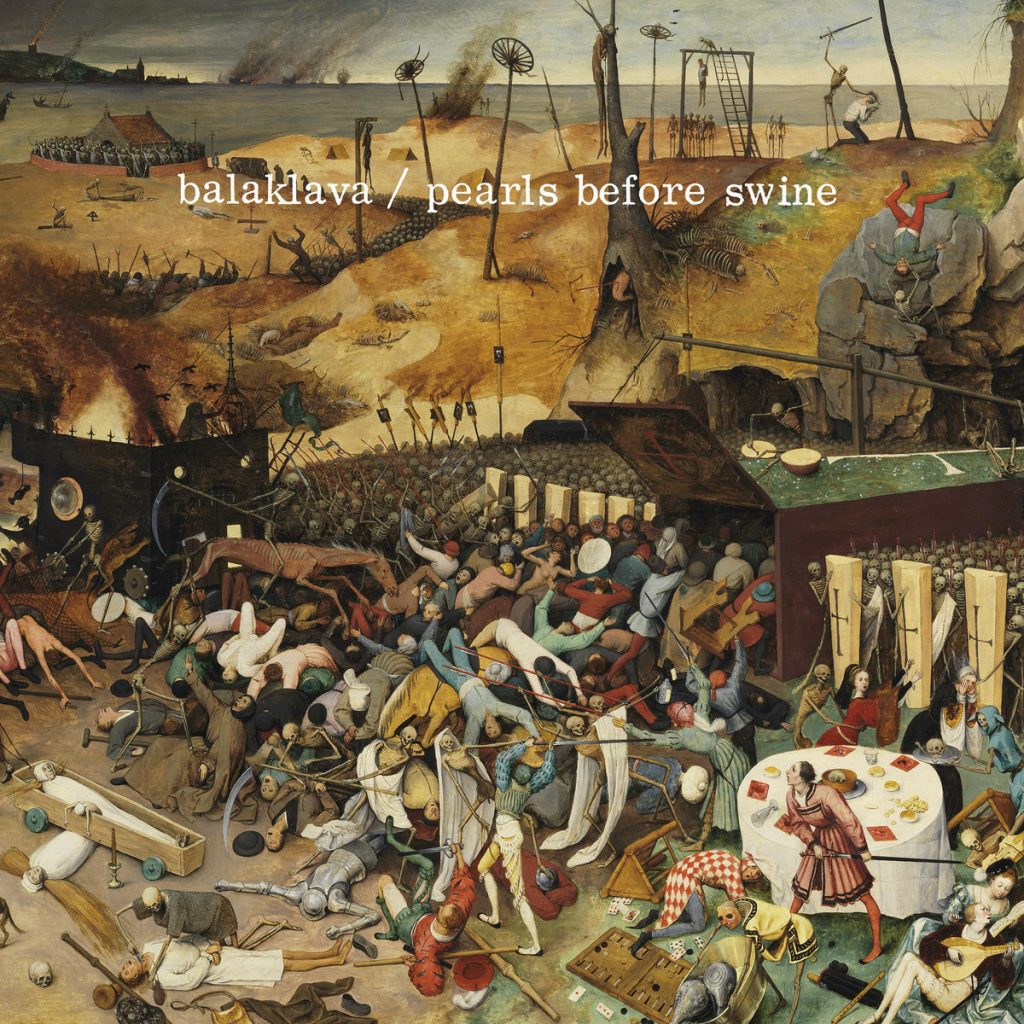
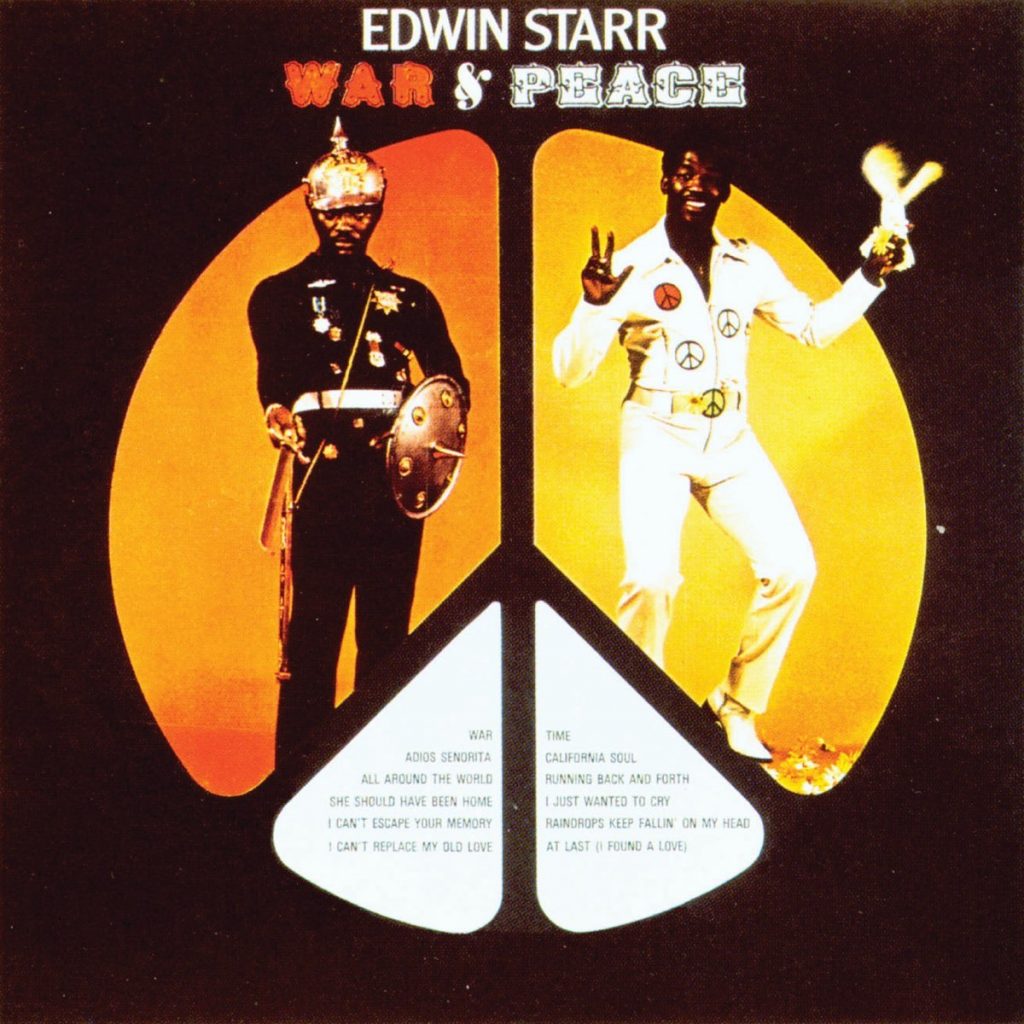
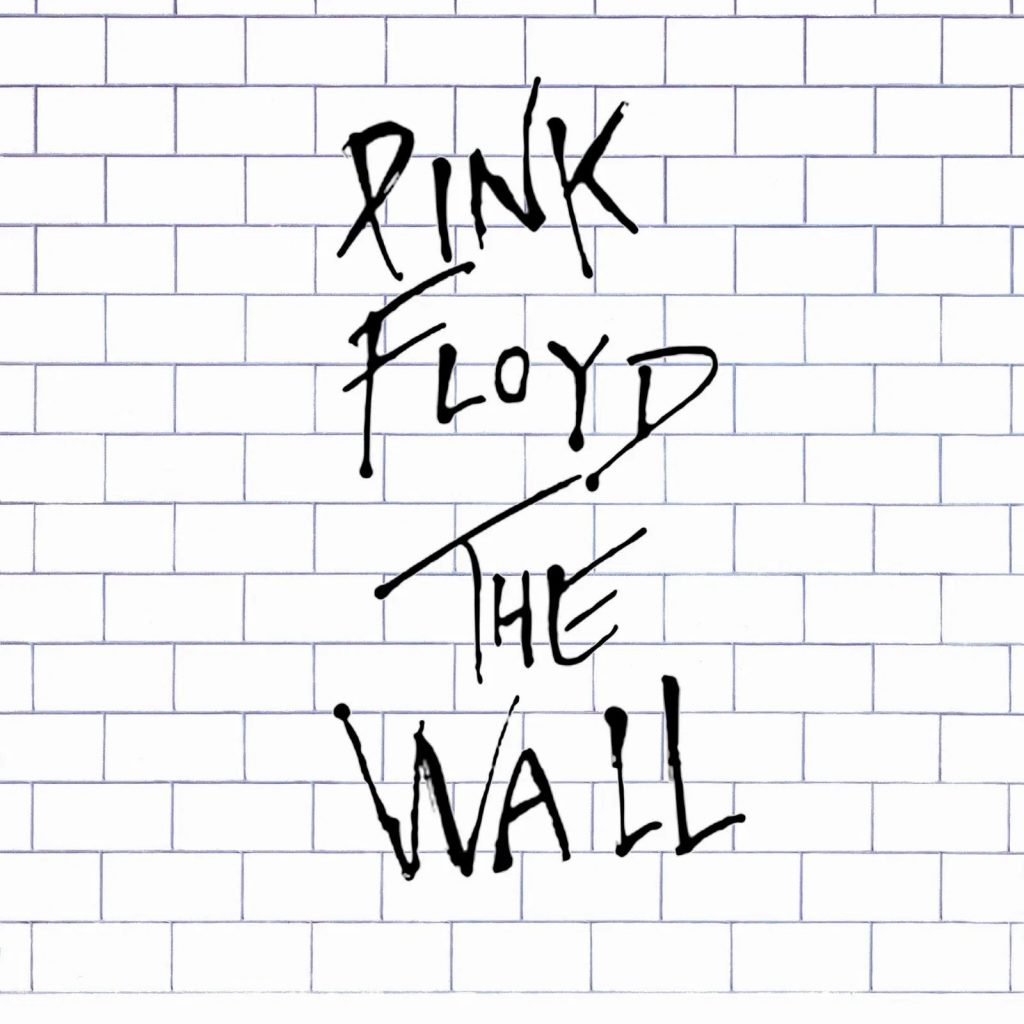
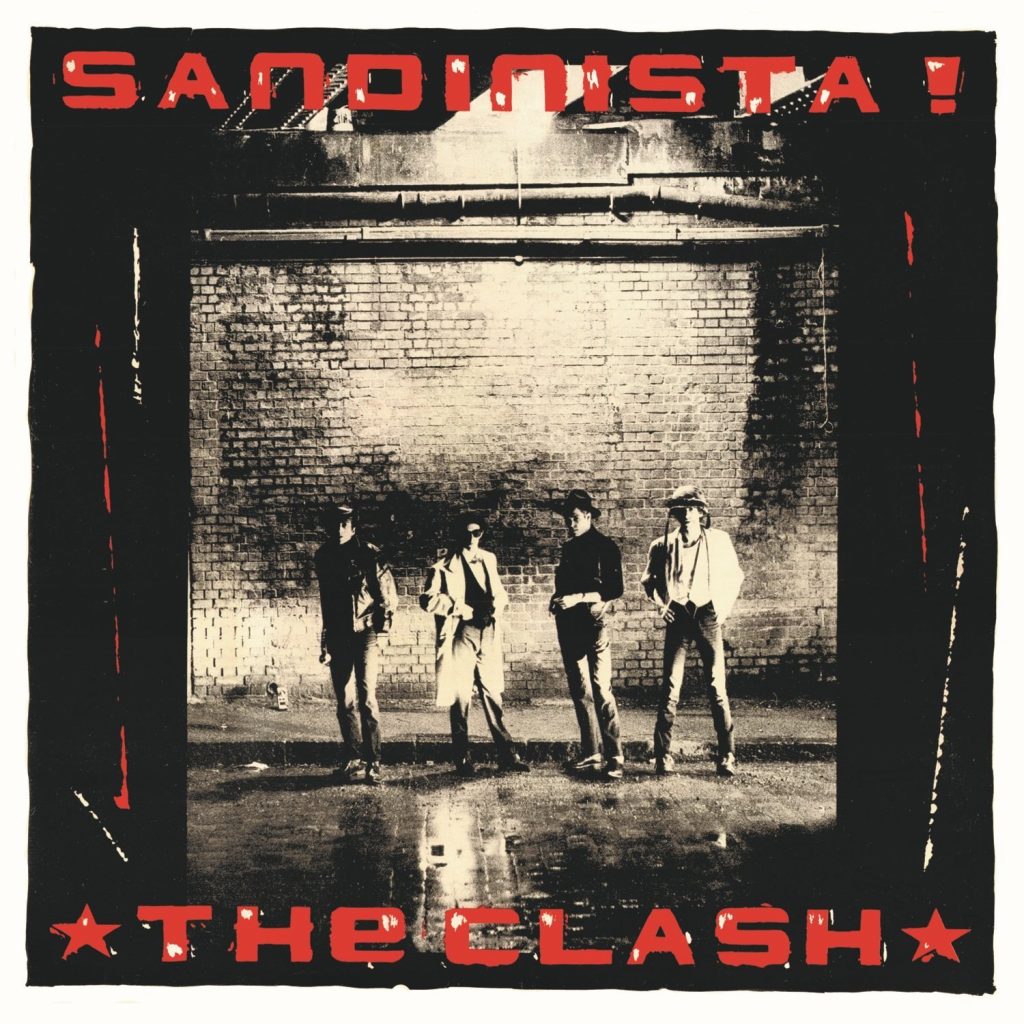
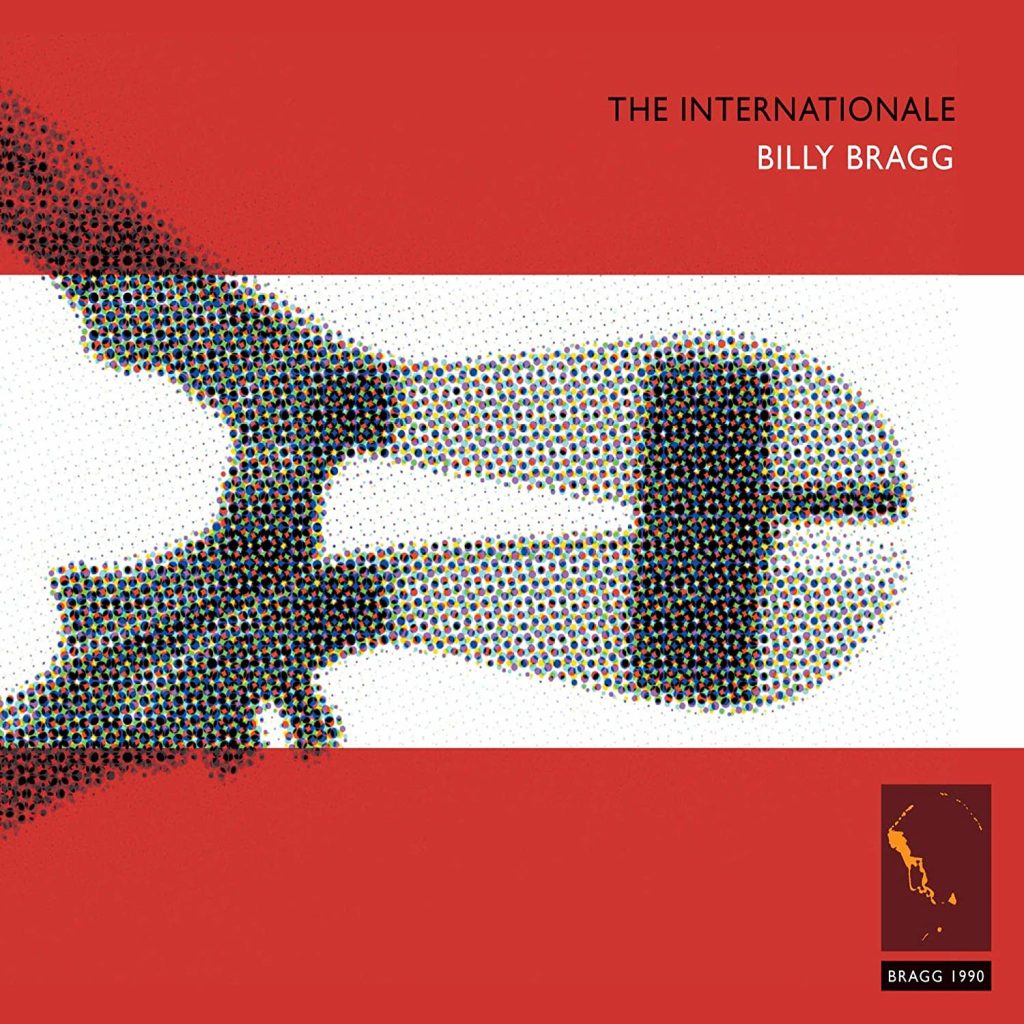
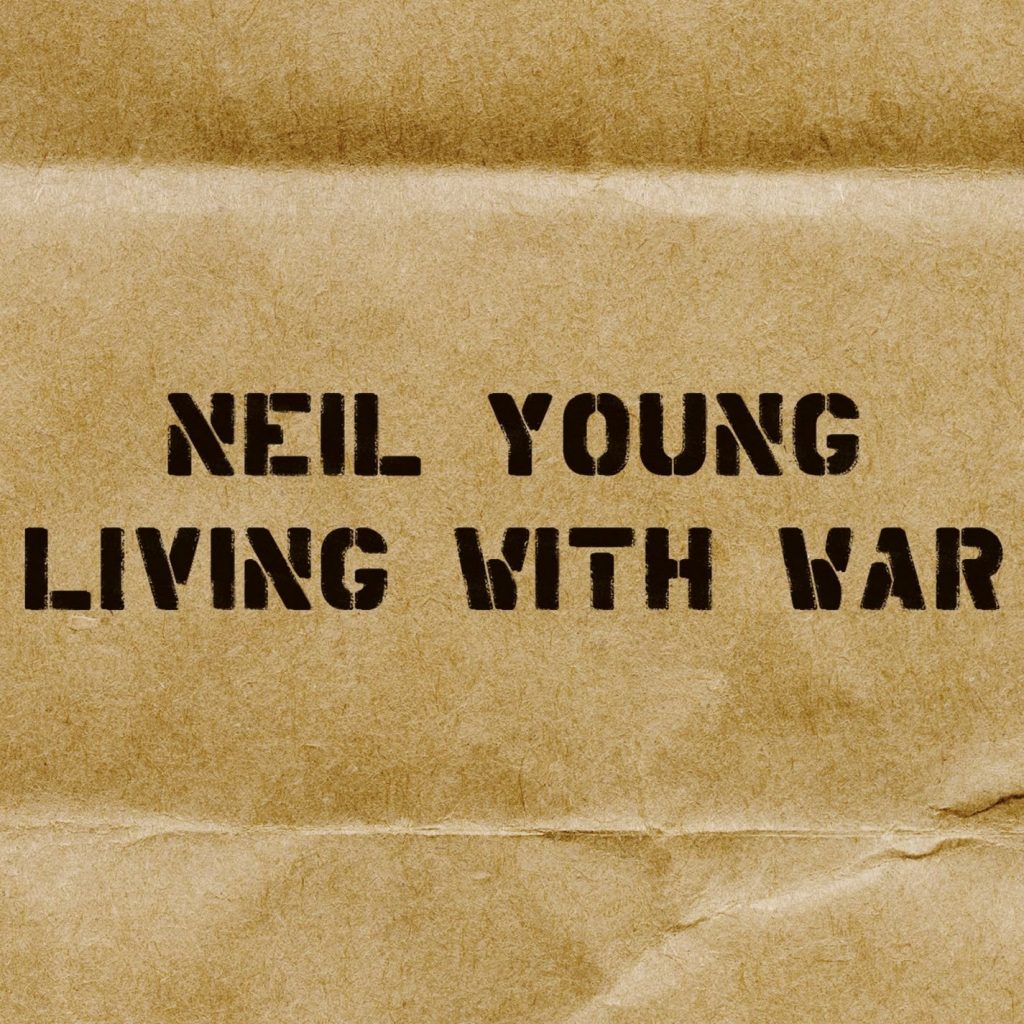
“Somewhere there’s a war, sometimes there is art,” sings Jeff Tweedy on “Shake It Off” from Wilco’s latest LP, Sky Blue Sky. And sometimes there are both. Whether it was Bob Dylan standing over the metaphorical graves of the Vietnam-era profiteers on “Masters Of War,” Jimi Hendrix turning his guitar into a lethal weapon for peace on “Machine Gun,” the Soft Boys warning a generation they were “dying to get killed” on “I Wanna Destroy You” or Public Enemy’s Chuck D railing at the government for daring to send him a draft notice on “Black Steel In The Hour Of Chaos,” musicians have long taken up instruments, pens and voices in service of a decidedly pro-human agenda. The following six albums represent rock’s finest anti-war protest music.
PEARLS BEFORE SWINE Balaklava (ESP-Disk)
In 1968, as the debate surrounding Vietnam raged around him, cult folkie Tom Rapp channeled his frustration into an impassioned, album-length essay about … the 1853-1856 Crimean War. Rapp buried his anti-war message within a somewhat disjointed storyline concerning the infamous Charge of the Light Brigade, a tragic military action resulting in the needless deaths of dozens of British cavalry soldiers due to flawed battlefield communications. Balaklava begins and ends with two late-1800s field recordings: “Trumpeter Landfrey…” (whose protagonist was one of the surviving buglers from the original battle) and “Florence Nightingale” (whose horrific nursing experiences during the war shaped her peacetime efforts to improve conditions at military hospitals). Veering from the reverbed 12-string strum and whispered contrapuntal vocal of “Translucent Carriages” to the pastoral, flute-driven “Images Of April,” Balaklava never reverts to protest music’s angry clichés. Friendly Fire: While Rapp’s master narrative is nearly perfect, Balaklava’s coda is an inexplicable J.R.R. Tolkien tribute called “Ring Thing” that preceded Robert Plant’s similar “darkest depths of Mordor” musings by a full two years.
EDWIN STARR War & Peace (Motown)
Had the Temptations released “War” as the lead single from their 1970 classic Psychedelic Shack—as their producer, Norman Whitfield, had urged them to do—it’s doubtful that Edwin Starr (née Charles Edwin Hatcher) would’ve registered as anything more than a b-league soul belter. But when Whitfield offered the track to Starr, the singer jumped at the chance to make the song his own. Starr’s impassioned vocals, punctuated by growled “Good God, y’all”s and “Listen to me”s, annihilates the Temptations’ milder version and came to define the post-Kent State campus peace movement while darting to the top of the pop charts in 1971. War & Peace contains its share of peak performances—the funky cadence on “Time” rivals the contemporary psychedelic soul of the Chambers Brothers—and emboldened Motown to release Marvin Gaye’s more artistically challenging What’s Going On the following year. Friendly Fire: Perhaps influenced by the contemporaneous success of Eric Burdon & War’s debut Declares ‘War!’ (a similarly funky if explicitly Latino-influenced hybrid), the inclusion of “Adios Señorita” on this album nevertheless remains a mystery.
PINK FLOYD The Wall (Capitol)
Ironically, it’s a song not found on this two-record, 26-track opus from 1979 that stands as the cornerstone of one of rock’s most caustic, embittered anti-war screeds. “When The Tigers Broke Free” was originally heard only in the 1982 movie version of The Wall. The song’s lyrics make clear the source of singer/bassist Roger Waters’ inspiration for his schizophrenic, emotionally damaged rock star Floyd “Pink” Pinkerton, describing in gripping detail the death of Waters’ father (just like Pink’s, a World War II serviceman) during Operation Shingle in Italy: “Anzio bridgehead was held for the price of a few hundred ordinary lives … And that’s how the High Command took my daddy from me.” When heard in this light, The Wall is less a self-mythologizing, hyperbolic rock opera about the dangerous isolation of fame; instead, it emerges as an extended psychotherapy session in which Waters exorcises the demons associated with his dad’s death. Friendly Fire: For all the adulation heaped upon The Wall, women are portrayed in a particularly jaundiced light on songs such as “Mother,” “Young Lust” and “Run Like Hell,” giving rise to the prevailing notion that Waters was one of rock’s foremost misogynists.
THE CLASH Sandinista! (Epic)
This 1980 triple-LP is a bacchanalian free-for-all at the revolutionary-rock feeding trough. Listed under the catalog number FSLN1 (the initials for Frente Sandinista de Liberación Nacional, a Nicaraguan Sandinista political movement), Sandinista! leaves nothing on the table stylistically, tackling dub, gospel and surf rock with the same fervor with which the Clash had already mastered punk, reggae and rockabilly. The album’s 36 tracks depict a world caught in the political crossfire of the Cold War. The paranoid amphetamine boogie of “The Leader,” the loose-limbed orchestration of “Rebel Waltz” and the anti-draft “The Call Up” form the basis of an anti-war album far more cohesive and powerful than its best-selling 1982 follow-up, Combat Rock. Friendly Fire: There may very well be a focused protest statement buried within Sandinista!, but it’s drowning in two records’ worth of unlistenable nonsense, including the children’s choral version of “Career Opportunities” and boring, failed dub experiments such as “Version City”/“Version Pardner.”
BILLY BRAGG The Internationale/Live And Dubious (Yep Roc)
No one does righteous, polemic indignation quite like working-class hero Billy Bragg. On this combo platter reissue (part 1990 seven-song political mini-album, part seven-track live document of a 1988 gig in the former Soviet Union, part five-song EP of outtakes from the Internationale sessions), the former British Army soldier draws from his brief military experience to establish himself as the preeminent protest singer of his day. What makes this album worth hearing are the arrangements: Rather than bang out a record of rough-and-ready tube-station busking, Bragg dresses each track in local color, giving “Nicaragua Nicaraguita” a deeply echoed a cappella reading and infusing “My Youngest Son Came Home Today” with an angry Northern Irish melancholy. Outside of his Wilco collaborations, this common man’s manifesto is the one Bragg album to own. Friendly Fire: This compilation would be even more powerful if not for the inclusion of the trite and preachy “Chile Your Waters Run Red Through Soweto” and “Days Like These.”
NEIL YOUNG Living With War (Reprise)
Neil Young’s politics have zigged and zagged all over the road throughout his four-decade career, resulting in albums extolling the virtues of Ronald Reagan’s arms buildup as well as collaborations with Crosby, Stills And Nash raking Richard Nixon over the coals for his handling of the Kent State shootings. Living With War was the state of Neil’s nation circa 2006: a withering attack on George W. Bush and the flimsy premise for the Iraq War. The album captured the country’s disenchantment with a war it no longer supported and its bitterness toward a president it came to see as, at best, disingenuous and, at worst, criminal. The melody of “Let’s Impeach The President” recalls ‘70s folk song “City Of New Orleans” to indict Bush for the bungled management of that city’s recovery from Hurricane Katrina. Friendly Fire: For all there is to admire in this album’s raw anger, “The Restless Consumer” and its hectoring chorus (Young bleating an atonal “don’t need no more lies” over a half-assed backing chorus) certainly doesn’t make the cut.
—Corey duBrowa





